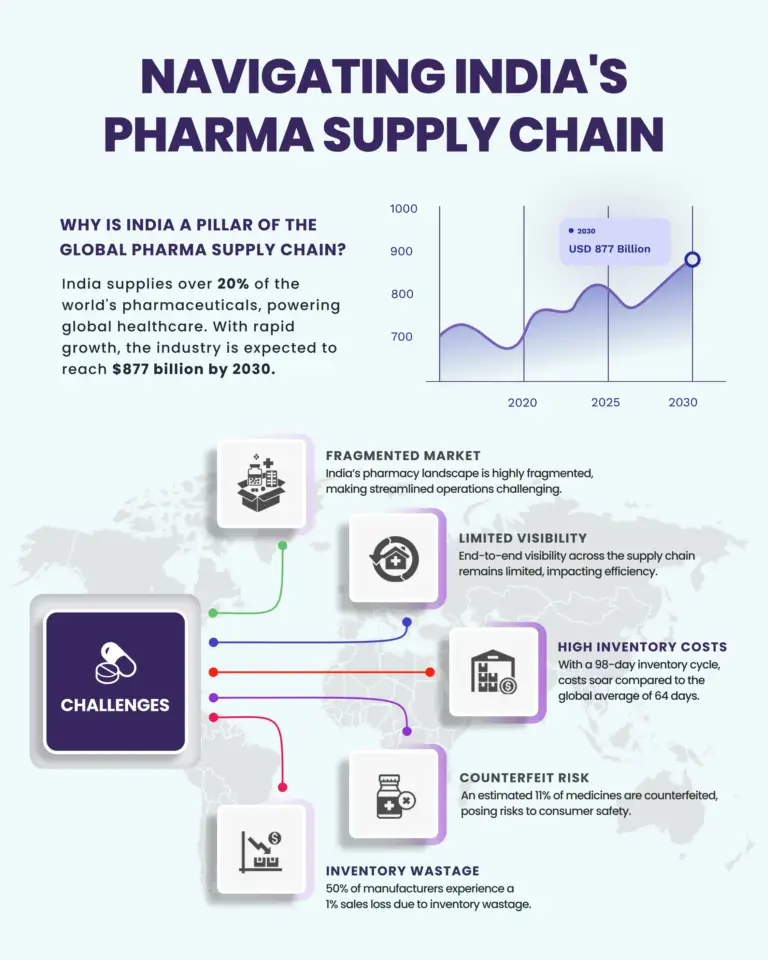India supplies over 20% of the world’s pharmaceutical needs and is often called the ‘Pharmacy of the World.’ Despite this reputation, India’s pharma supply chain lags behind its global counterparts. In fact, the total cost of the Indian pharma supply chain is 15% higher than the global average. This discrepancy arises from several core challenges:

1. Fragmented Supply Chain
The Indian pharma supply chain is highly complex, with multiple delivery points. Each delivery requires coordination with 20-30 vendors, most of whom operate in an unorganized manner. This fragmentation causes frequent delays, lack of accountability, and challenges in coordination. There is no visibility in goods or total costs. Additionally, there is an inadequacy in warehouse infrastructure, especially in rural India.
2. Lack of Resilience
Pharmaceuticals are essential goods, yet the Indian supply chain struggles with resilience, as we have seen during the COVID-19 pandemic when critical medicines were delayed. It has been slow to adopt new technologies. A resilient supply chain is crucial not only for pandemics but also to withstand global disruptions like wars and natural calamities.
3. High Inventory Period
Due to fragmented logistics networks, Indian pharmaceutical companies need to hold more inventory compared to other countries. The average inventory cycle in India is 98 days, significantly longer than the global average of 64 days. This longer cycle adds to warehousing costs, which further increases the overall cost of the supply chain.
4. Counterfeit Drugs
Approximately 11% of medicines in India are counterfeit, which poses a serious threat to public health. The supply chain must create more transparency by implementing technologies like blockchain to ensure the authenticity of drugs at every stage.
5. Lack of Cold Supply Chain
The effectiveness of certain medicines depends on maintaining specific temperatures during transport. India’s cold supply chain infrastructure is underdeveloped, with frequent power cuts adding to the challenge. This leads to potential wastage and reduced efficacy, compromising patient safety.
India has immense potential in the global pharmaceutical market, but to sustain this edge, solving supply chain challenges is essential. Enhancing infrastructure, adopting technology, and improving transparency will be key to remaining competitive.


